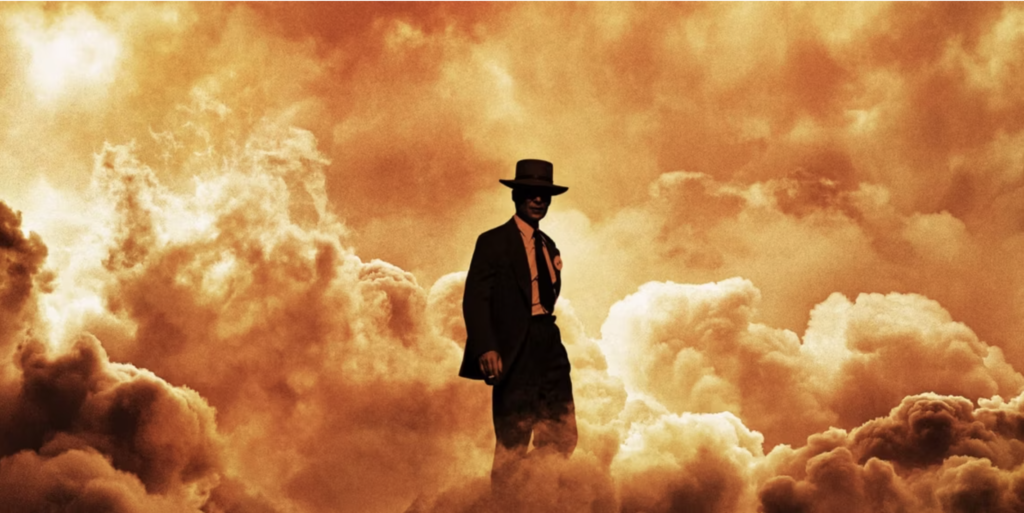Oppenheimer and Japan: A Complicated Legacy

Image Courtesy of Gamerant
By Kristijan Jakominich
This is an independently submitted op-ed for our Quill section. Views and statements made in this article do not necessarily reflect the opinions of The Tower.
I recently returned from a semester-long trip to Japan. My time there, which was incredible, granted me many insights into the life and culture of Japan. However, with the internet, I wasn’t completely disconnected from life at home.
One of the most popular events of the year was the simultaneous release of the movies Barbie and Oppenheimer, two seemingly polar opposite films that happened to be released simultaneously. The memes were aplenty, and though they were perhaps short-lived on originality and humor, it called to attention two movies that likely would have otherwise gone further under the radar pre-release.
When the movies came close to release, I noticed a curious trend in my host country. I began seeing Barbie advertisements in busy metro stations and pre-ticket sales for the movie in theaters. Despite the global trend, however, there was no such advertisement for its twin release. Of course, to say this is understandable is an understatement.
The Japanese public and internet space have been generally quite critical of the trend in American circles of making the inventor of the Atomic Bomb a meme. According to Reuters, there has been a wave of online backlash against the “Barbenheimer” trend in Japanese Twitter (or X) circles, and a petition has gained thousands of signatures demanding Warner Bros cease using the meme as a marketing tool. There was even a viral meme on Japanese social media that cropped Barbenheimer’s posts and replaced them with images of the September 11 attacks, including Oppenheimer getting replaced with Osama Bin Laden. These reactions belay a deeper history and issue that must be addressed regarding the end of World War II and the dropping of the atomic bombs.
Japan is, to date, the only country to be attacked with nuclear weapons. This was done when the country was already defeated for all intents and purposes, with only hardliners in the Imperial Japanese Army demanding a fight to the bitter end. There is much historical debate whether the bombs, which attacked primarily civilian targets in Hiroshima and Nagasaki, actually contributed to Japan’s unconditional surrender, as the modern consensus seems to grant main priority to the Soviet invasion of Japanese-controlled Manchuria and Korea. Common defenses primarily center around the proposed Operation Downfall, wherein Allied troops would invade the Japanese mainland, with death tolls estimated to have been in the millions if the Operation went through. In common discussion of World War II, American narratives paint a picture of Japanese barbarity due to both objections to Japanese war crimes during the war while also misunderstanding the cultural reasons for Japanese refusals to surrender. This dehumanization, therefore, influenced public opinion about a nuclear bombing. Whether the bombings are justified or not is a topic of great debate in American circles, and many interpretations of the new movie tend to be influenced by that fact.
The aftermath of the war and the bombings left Japan with a predominantly pacifist culture due to both the constitution’s Article IX prohibiting armed conflict and a public scarred by the loss of the war and the sheer devastation caused by the American bombing. The country has taken a formal lead on the world stage for denuclearization, and calls for Japan to become a nuclear-armed state in response to Chinese aggression remain incredibly controversial.
Japanese-American relations later took a sharp turn towards close friendship, which was further signified by former U.S. President Barack Obama apologizing for the bombings in Japan.
Despite the film’s portrayal of Oppenheimer’s historical guilt regarding his involvement in the Manhattan Project, to a citizen of Japan, he’d be nothing short of a war criminal being glorified with a biopic. It’s hard to blame them otherwise: imagine a figure like Bin Laden or Saddam Hussein being given a three hour long movie that sympathetically looked into their character and gave reasons for their actions. Does that say anything about Oppenheimer as a man or his character? No, and it says nothing about the movie itself, either. Despite certain controversies regarding unexpected sex scenes and especially the handling of the Hindu scripture, the Bhagavad Gita, during one such scene, the movie has been lauded as one of Christopher Nolan’s best movies, which says something.
Rather, this article intends to shine a light on why this movie has generated controversy on another side of the world while causing little domestically. We, as Americans, tend to carry a very one-sided view of the world, regardless of personal political preference or how we view American history. Whether that can be justifiable or not is up for debate. The heroes and geniuses of one nation very quickly tend to be the devils and monsters of another, and the narrative is just a matter of perspective.







